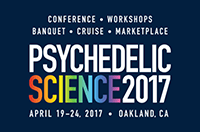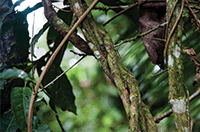
Insights From The Beckley/ICEERS Ayahuasca Collaboration
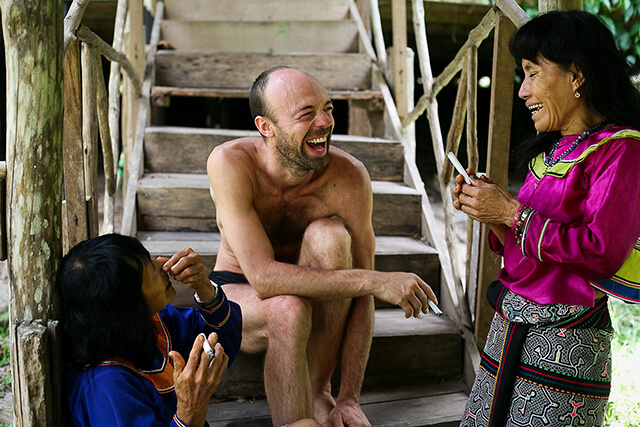 Participants experienced an increase in mindfulness-related traits, such as ‘decentering’
Participants experienced an increase in mindfulness-related traits, such as ‘decentering’
Psychedelic Science 2017 was a crossroads where the paths of contemporary science and ancient healing wisdom intersect. From the apex of this cultural reconciliation, Débora González, Ph.D, presented the preliminary findings from a collaborative study by the Beckley Foundation and ICEERS, investigating the long-term effects of ayahuasca on mental health and quality of life in Western users.
“We’re asking whether ayahuasca is an effective tool to support emotional regulation in people suffering from anxiety, depression, post-traumatic stress disorder (PTSD) and grief,” she explains.
About the research
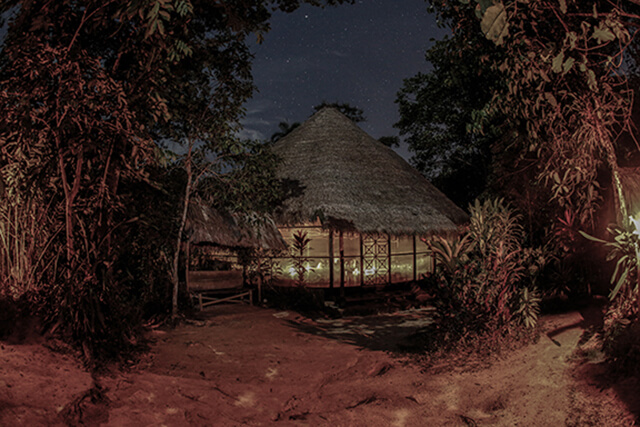 The Temple of the Way of Light
The Temple of the Way of Light
The Beckley/ICEERS research project was conducted at the Temple of the Way of Light, an ayahuasca retreat in the Peruvian Amazon where ceremonies are led by Onanya (healers) of the Shipibo tribe.
In the months leading up to their treatment, participants underwent a series of tests designed to analyze their psychopathology levels and overall quality of life. These tests were then repeated immediately after the ayahuasca workshops and again three months later, with plans to conduct further analyses after six and twelve months.
“Results so far have been striking,” says González. “Over the course of a retreat – which can range from nine days to three weeks and involve five to eight ayahuasca sessions – we see a reduction in psychopathological symptoms that lasts for three months. We’re yet to conduct the six-month follow-up analysis so I can’t say if this will continue, but it’s clear that the effect is persistent.”
Interestingly, while improvements were seen in patients with all four emotional disorders, those with PTSD appeared to experience the most benefit. “When we compare quality of life scores before and after ayahuasca treatment, we see that the biggest improvement is in those with PTSD.”
How does ayahuasca produce these effects?
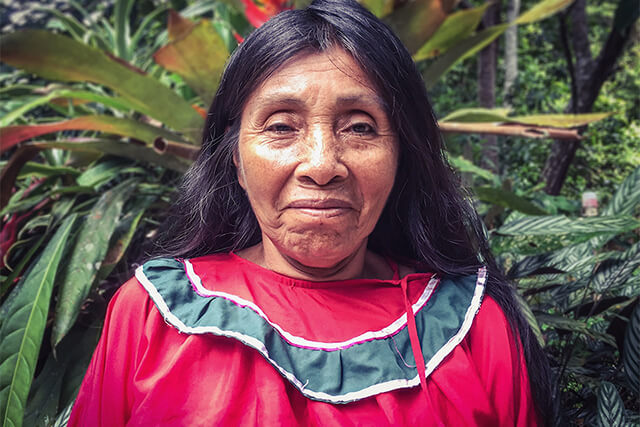 Maestra Rojelia is one of the Shipiba Onanya at the Temple of the Way of Light
Maestra Rojelia is one of the Shipiba Onanya at the Temple of the Way of Light
“Psychedelics allow access to layers of experience that are beyond the reach of regular therapies,” explains González. Therefore, rather than directing patients towards confronting the specific traumatic events underlying their condition – as is the common protocol for treating PTSD – ayahuasca allows users to relive the raw emotions behind their trauma, such as fear and helplessness. In doing so, it facilitates a reconnection with one’s former victimised self and provides an opportunity to heal by nourishing one’s self with love and compassion, finally meeting the emotional needs that for so long had gone unfilled.
Through ayahuasca, patients were able to liberate themselves from their long-standing pain, and thereafter began to exhibit higher scores for several core traits associated with mindfulness. In particular, we saw an increase in ‘decentering’, which refers to the ability to calmly observe one’s thoughts and feelings, detaching them from one’s own sense of identity in order to become less judgemental towards them and more self-accepting.
What risks does ayahuasca pose?
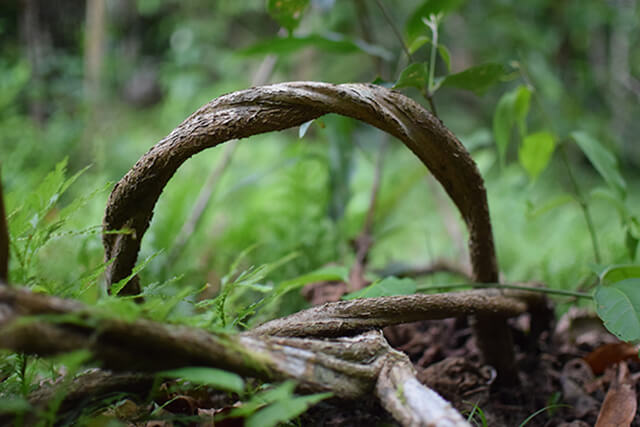 Ayahuasca – the “vine of the soul”
Ayahuasca – the “vine of the soul”
The International Narcotics Control Board (INCB) has recently published two reports urging governments to crack down on ayahuasca over fears that its use – particularly among Westerners – could have negative health effects. In particular, the reports express concern that taking ayahuasca outside of its traditional cultural context could lead to substance abuse disorders as people become hooked on it or use it as a gateway to other drugs.
Yet no scientific evidence currently exists to either support or refute these claims, so the Beckley/ICEERS team analysed the substance use patterns of all participants both before and after their ayahuasca treatments.
Based on the established criteria for diagnosing mental illnesses set out by the American Psychiatric Association, the researchers found no evidence of any patients developing substance abuse disorders, either in relation to ayahuasca itself or other drugs.
Overall, the researchers conclude that ayahuasca does promote emotional regulation in sufferers of depression, anxiety, PTSD and grief. Moreover, its use breathes new life into modern psychotherapy by opening up alternative paths towards healing – including those first paved by the Shipibo ancestors.
All images courtesy of the Temple of the Way of Light
Words by Benjamin Taub
Podcast
- All
Links
- All
Support
- All
BIPRP
- All
Science Talk
- All
Amanda's Talks
- All
- Video Talk
- Featured
- 2016 Onwards
- 2011-2015
- 2010 and Earlier
- Science Talk
- Policy Talk
One-pager
- All
Music
- All
Amanda Feilding
- All
Events
- All
Highlights
- All
Psilocybin for Depression
- All
Current
- All
Category
- All
- Science
- Policy
- Culture
Substance/Method
- All
- Opiates
- Novel Psychoactive Substances
- Meditation
- Trepanation
- LSD
- Psilocybin
- Cannabis/cannabinoids
- Ayahuasca/DMT
- Coca/Cocaine
- MDMA
Collaboration
- All
- Beckley/Brazil Research Programme
- Beckley/Maastricht Research Programme
- Exeter University
- ICEERS
- Beckley/Sant Pau Research Programme
- University College London
- New York University
- Cardiff University
- Madrid Computense University
- Ethnobotanicals Research Programme
- Freiburg University
- Medical Office for Psychiatry and Psychotherapy, Solothurn
- Beckley/Sechenov Institute Research programme
- Hannover Medical School
- Beckley/Imperial Research Programme
- King's College London
- Johns Hopkins University
Clinical Application
- All
- Depression
- Addictions
- Anxiety
- Psychosis
- PTSD
- Cancer
- Cluster Headaches
Policy Focus
- All
- Policy Reports
- Advisory Work
- Seminar Series
- Advocacy/Campaigns
Type of publication
- All
- Original research
- Report
- Review
- Opinion/Correspondence
- Book
- Book chapter
- Conference abstract
- Petition/campaign
Search type
